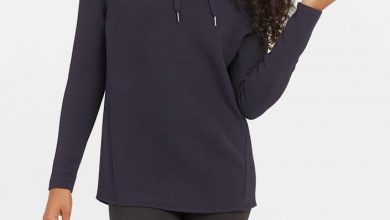Models back the Respect Program to tackle sexual abuse in fashion


Just because youre being photographed doesnt mean youve invited anyone to touch you.
In the wake of the Harvey Weinstein scandal and the rise of movements such as #MeToo and Times Up, the world of fashion is finally facing a seismic shift in how models are willing to be treated in the industry.
Allegations of sexual abuse and inappropriate conduct by photographers, designers and casting agents have been rife in fashion for many years.
Models, particularly young women at the beginning of their careers, are often vulnerable to the attentions of older, better established men who can ensure that these models are blacklisted if they speak out about harassment.
However, change is coming. Sara Ziff, founder of the Model Alliance and former model, has created the Respect Program, a concrete plan of action for changing the culture of the industry to reflect the values of respect and professionalism, and protecting models from abuse.
Advertisement
Advertisement
The Model Alliance has been championing the rights of models as legitimate members of the workforce since 2012.
The organisation has broadened its mission in the last five years, promoting social responsibility and transparency in global supply chains alongside tackling sexual harassment and unreasonable pressures on models to engage in starvation diets.
The new Respect Program urges brands, modelling agencies and media outlets to sign an open letter and call to action thats already been backed by 100 models including Milla Jovovich, Doutzen Kroes, Edie Campbell, and Karen Elson. The program includes a legal agreement that will compel brands and agencies to take action if a complaint is filed and investigate it thoroughly using an unbiased third party.

Models will also be provided with a hotline thats available 24hours a day and can be called anonymously. Users will have complete peace of mind when using this resource, knowing that the person who takes their call isnt affiliated with any agency or brand and will take their complaint seriously.
Sara Ziff told Teen Vogue: In light of Harvey Weinstein and #MeToo, there has been a real shift in the national discussion. “Respect” basically asks companies to make an enforceable commitment to prevent sexual abuse in our industry.”
To create the Respect Program, Sara says the key was to listen to models. We asked them, “How would you want to file a complaint?” “What are the situations youve been put in?” We know our industry and our experiences better than anyone, so we should be informing the solution.
Since the courage of female whistleblowers finally shone a light on the criminal behaviour of Harvey Weinstein, a slow shift has been occurring in fashion. Photographer Terry Richardson, the industrys open secret, was dropped by Condé Nast in October 2017, meaning that he can no longer work for top fashion magazines including Glamour, Vogue and Harpers Bazaar.
More: Fashion
Advertisement
Advertisement
Richardson had been accused of sexual abuse by numerous models, but allegations were largely ignored and he continued to get work with top brands like Yves Saint Laurent, Gucci, Marc Jacobs and Tom Ford. In 2014, model Lisukla Cohen said that her advice to girls working with Uncle Terry was to bring a bodyguard, keep your clothes on, and if he exposes himself call the police.
Branded the Harvey Weinstein of fashion, Richardsons exposure as a predator and Condé Nasts decision to drop him is hopefully part of a sea change in the industry.
Industry heavyweights including Mario Testino and Bruce Weber have also been accused of groping and inappropriate behaviour by more than 15 former and current male models.
In 2017, Sarah Ziffs the Model Alliance partnered with Condé Nast for a new intitative that ensured models had the opportunity to use private changing rooms on set and put in place age limits for models working without their guardian present.
Ziff believes that change has to start on the ground level. Its important to us that the models are leading this effort. Even if were being photographed to appear as a face, ultimately our bodies are ours. Just because youre being photographed doesnt mean youve invited anyone to touch you.
Despite fashion designer Karl Lagerfelds assertion that if you dont want your pants pulled about, dont become a model after Interview Magazines Creative Director Karl Templar was accused of sexual assault, models are fighting to assert their bodily autonomy and right to a safe working environment.
Creating lasting, meaningful change in the fashion industry might be a slow, uphill struggle, but the first steps are already being made.
MORE: The fashion industry is still waiting for its #MeToo moment
MORE: We have to stop forgiving terrible men
Advertisement
Advertisement



